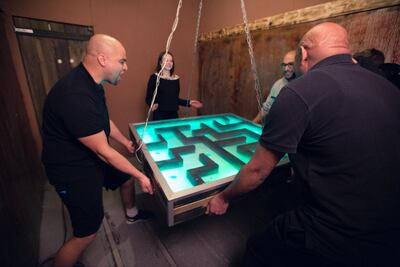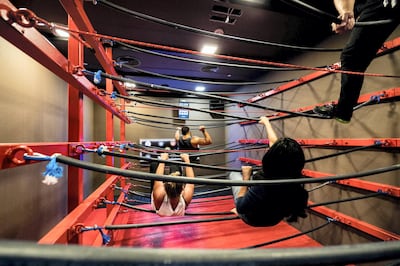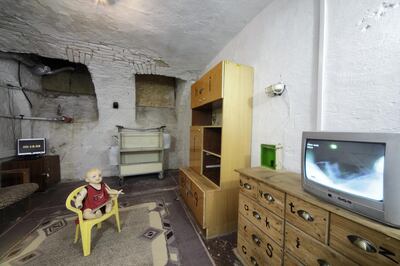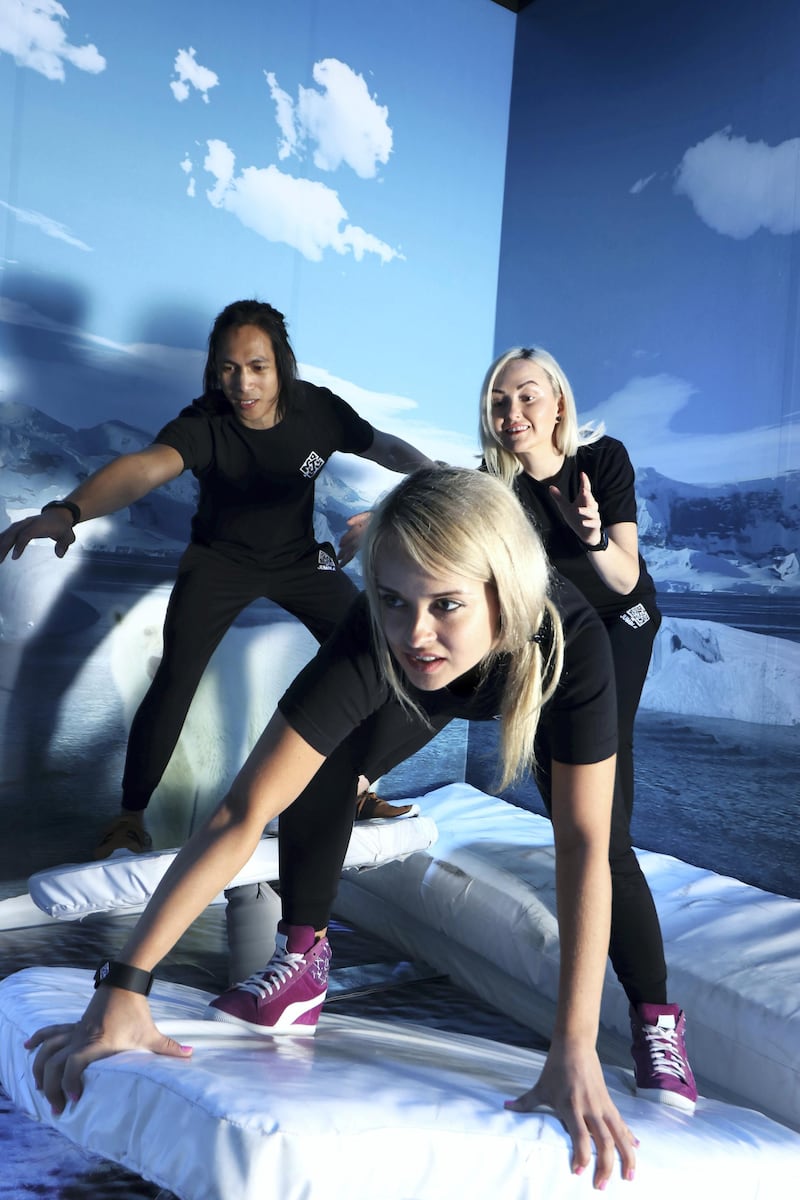The ruined pubs of Budapest are popular for many reasons: for some, they are a reminder of the Hungarian capital's chequered history, while others are fascinated with the idea of dining and dancing in these derelict buildings from the Second World War. For Attila Gyurkovics, however, the bunkers served as the location for his pet project in 2011, an escape room.
The labyrinthine chambers worked perfectly for the Hungarian entrepreneur’s Parapark, considered the world’s first escape-room adventure park, which is based on the flow theory. “The concept was outlined by psychologist Mihaly Csikszentmihalyi. He talks of the psychology of optimal experiences, which says that people are most satisfied when they are in a state of complete focus,” explains Gyurkovics. “At this time, you are not worried about your work or your relationships or money; you are immersed in the task at hand and all your skills come to the fore.
“And when this is combined with having clear goals and getting feedback about your progress, you become more confident and experience feelings of success and positivity. An escape room, where you move from one clue to the next, one task to the next, one zone to the next, captures exactly this.”
A typical Parapark game might involve a four-walled chamber with a sofa, a safe and a computer. The code to open the safe and find your next clue could be hidden in one of the folders on the desktop, written on part of the wall hidden behind the sofa or even inked out under the light switch. And so the flow goes.

The UAE is no stranger to similarly themed escape and adventure rooms, from Challenge Chambers in Abu Dhabi's Al Wahda Mall to The Escape Hunt Experience in Dubai's Galleria Mall. Jumble, which opened in Dubai last November, labels itself "an urban maze, full of tsiwts, truns and mnid-bneding chnellages". From immersive screens and virtual reality hacks to puzzles that require both logic and lateral thinking, the "jumbles" require physical and mental prowess. Observation skills are a must – the postbox that just flew past the screen could well be spray-painted with the Pin for the ATM card your teammate unearthed in room one.
“Jumble is a team game that requires problem-solving, stamina, observation, co-operation and communication. Teams that have these skills progress further,” says the Jumble team. “Due to the repetitive nature of the game [you have to go back to room one upon missing a clue], a team will eventually turn into a finely oiled machine with every member knowing where he or she could contribute best.
"So far we've had only one truly dedicated team that managed to complete all the jumbles, but for the vast majority, there is still plenty to explore, figure out and complete. Everyone likes to play."

How, then, do the designers and creatives behind such ventures decide upon the level of difficulty that people need to overcome? “When we design a game, we aim to make something that is both fun and challenging,” explains the Jumble team. “There are numerous factors impacting the difficulty level; something as simple as the lighting in a room could drive a team mad trying to solve it. This is why we have ninjas to help steer players in the right direction. We want players to win… after we’ve made them sweat a little, of course.”
According to Gyurkovics, “getting out is just a bonus”. In most Parapark challenges, there are some groups that take only 40 minutes to work out the hour-long experiment, while the majority need at least 50 minutes, as well as some help from the staff. “Even if every third group gets stuck, I think that’s OK,” he says. “Because of the flow theory, the point of the exercise is the experience itself and the small group dynamics at play.” He does reveal that balance is key – “too easy is too boring, but too difficult is frustrating”.
For the team at Tepfactor, which opened at The Walk in Dubai this May, not being locked in is important. Set up within a cavernous edifice, the game is divided among 21 rooms, all designed to emulate the nooks and crannies of a concealed cave, complete with walls adorned with amethyst and quartz-like crystal segments.
“Teams can try our challenges as many times across three difficulty levels, bronze, silver and gold, until they make it through – something you can’t really do in escape rooms. You not only leave with a stronger sense of will, but also remember all the silly and funny moments you have with your team; it’s an intangible experience,” explains Marwan Shazali, chief executive of Tepfactor. The challenges test strength, agility, brain power and patience, and include everything from crawling through tunnels and swinging on ropes to mental maths and wordplay.
In terms of feedback, Shazali says: “The thing we love hearing the most is: ‘I never thought I had it in me.’ With the challenges covering categories that test everything, it’s the determination that adds a glow at the end.”
This harks back to Gyurkovics’s flow theory. Exercises such as these primarily work because of the adrenaline rush you experience, both when you resolve a task as well as when you’re in the midst of it; now if only we could work out the purpose of the spooky doll with the missing arm.

______________________________
Read more:
Your essential guide to things to do in Abu Dhabi and Al Ain
Creepy or cute? The self-driving car with 'eyes'
The end of dune bashing? Autonomous off-roading is on its way
______________________________






